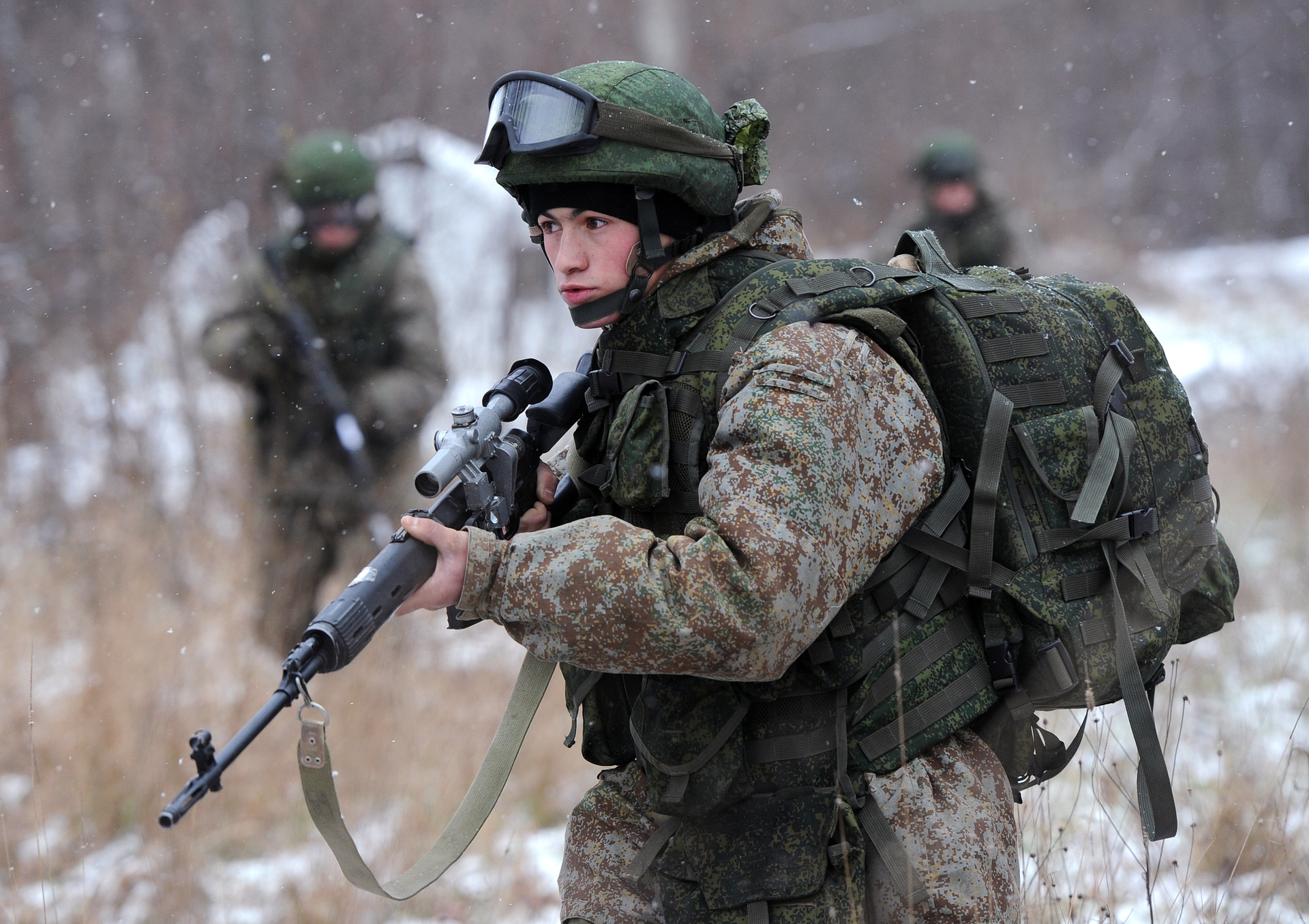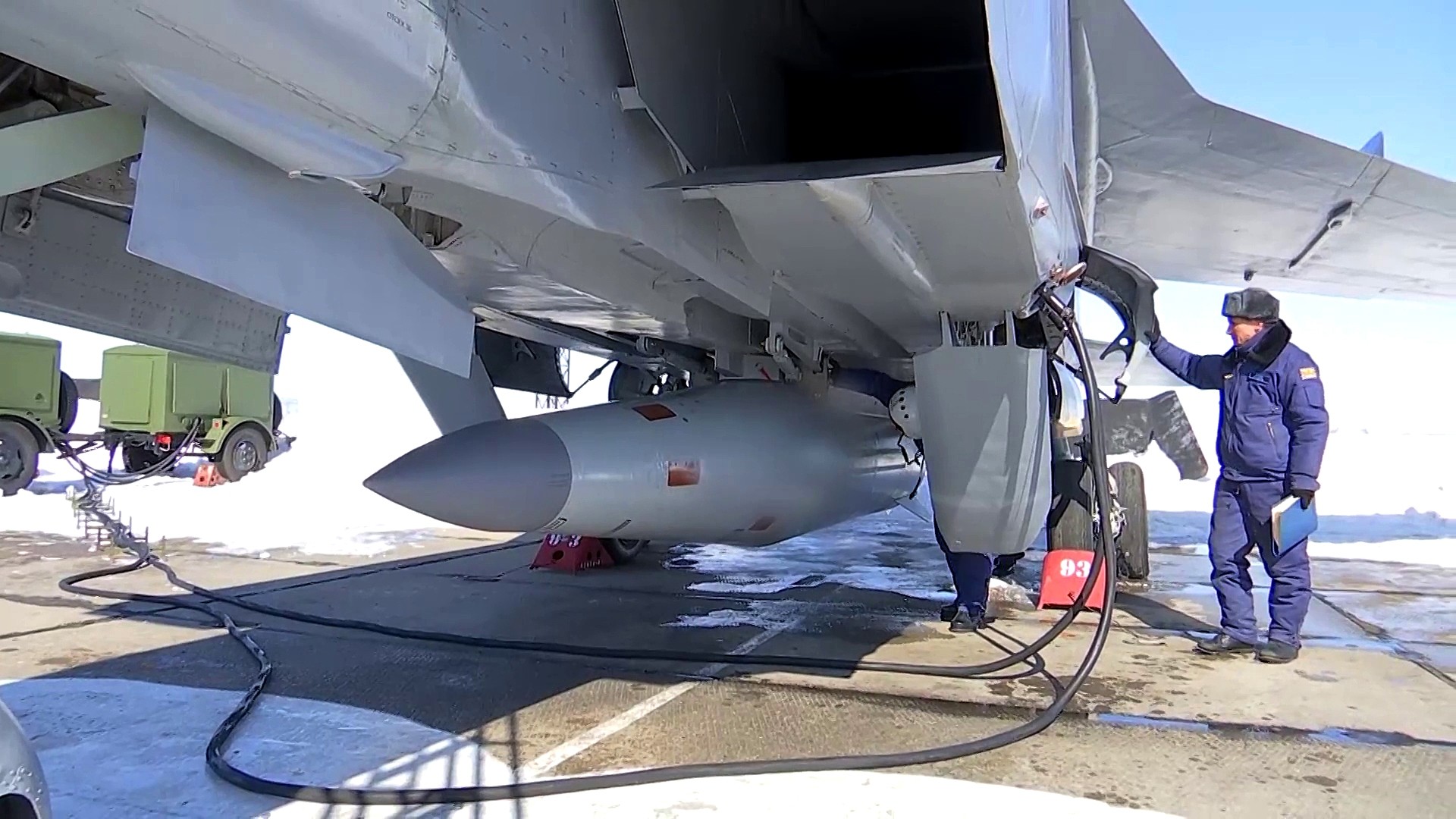Russian President Vladimir Putin said that Moscow would be forced to take additional measures to strengthen security “in the event of scrapping” of the Treaty on the Elimination of Intermediate-Range and Shorter-Range Missiles (INF) by the United States. The head of state stressed that this document "plays the role of a stabilizing factor" in international relations.
“Such a step will have the most negative consequences, it will noticeably weaken regional and global security. In fact, in the future we can talk about the degradation and even the collapse of the entire architecture of arms control and non-proliferation of weapons of mass destruction, ”said Putin, speaking on Tuesday, December 18, at an expanded meeting of the board of the Russian Defense Ministry.
The President of the Russian Federation instructed the military department to continue the course of rearmament of the army and navy, taking into account current risks and threats. The primary task, he said, is to strengthen the combat potential of strategic nuclear forces (SNF). Putin urged to accelerate the transition to modern weapons, which has enhanced capabilities for overcoming promising missile defense systems.
The President of the Russian Federation paid much attention to the latest developments of the national defense industry complex (MIC), which will allow Russia to maintain strategic parity with the United States. He said that tests of the Sarmat intercontinental ballistic missile (ICBM) are being successfully continued, and its practical application is being tested.
The Russian leader also recalled that the Dagger aircraft missile with a range of up to 2,000 km, the X-101/102 strategic cruise missile with a range of up to 4.5,000 km, and the Peresvet laser complex are on duty at the VKS. In addition, since 2018, the Avangard hypersonic complex has been mass-produced. According to Putin, Russia has “new weapon systems that no one else has”.
At the same time, the Russian leader drew attention to the growing “disparity” in the military budgets of the Russian Federation and the United States. According to him, in 2019 Washington will spend $ 725 billion for the needs of the armed forces, while Russia's defense spending in 2018 was $ 46 billion, and in the coming years they will decrease as a percentage of GDP. Despite this, Putin is confident that the Russian Federation will ensure the preservation of the existing balance of power by investing in priority projects.
Planned upgrade
At an extended meeting of the board of the Russian Defense Ministry, the head of the military department, Sergei Shoigu, announced a growing military presence of US forces and other NATO member countries near Russian borders. The main goal of Washington is to accelerate the process of transfer and deployment of troops in the east of the alliance and in the Arctic region.
“In 2019, the main and alternate transport routes will be determined. By 2020, a mechanism for coordinating cross-border transfers has been established, and the time required for obtaining the necessary permits will be reduced from 15 to 5 days. This year, the US has already spent $ 6.3 billion on work to develop a forward-based system, mainly in the countries of Central and Eastern Europe, ”said Shoigu.

- RF servicemen
- RIA News
- © Alexey Filippov
The Minister of Defense stressed that the Russian military “are closely monitoring the situation” and take into account in military training events that are held near the western borders of the Russian Federation. Also, as noted by Shoigu, the process of creating a modern, mobile, compact and efficient army continues in Russia.
According to the Minister, the Armed Forces of the Russian Federation are ready to counter threats without increasing the military budget and the number of troops. The growth of the capabilities of the Russian army will be achieved through its planned rearmament.
As of December 2018, the share of timely and modernized equipment in the Armed Forces was 61.5%. The greatest successes in modernization were achieved by the Strategic Missile Forces (82%), VKS (74%), and the Airborne Forces (63.7%). More modest results were demonstrated by the Navy (62.3%) and Land Forces (48.3%).
In 2019, the Strategic Nuclear Forces of the Russian Federation are to receive 31 launchers with the Yars and Avangard ICBMs, the Project Prince Vladimir 955 submarine nuclear cruiser and four modernized Tu-95MS strategic bomber.
In a conversation with RT, military expert Yury Knutov emphasized that the increase in the proportion of modern models and the level of training of military personnel in the troops is the most optimal response to the challenges and threats faced by Russia, including the strengthening of the NATO group and the US withdrawal from the INF.
“In the West, Moscow is often accused of“ militarism ”, but in reality it is enough to look at the US and Russian military spending to understand who the real militarist is. In such a situation, we are simply obliged to increase our combat capabilities, primarily the strategic forces, the troops of the Western Military District and the North command located in the Arctic, Knutov explained.
"The threat of guaranteed destruction"
Commenting on the situation at the board of ministers of defense at the Ministry of Defense, Vladimir Putin noted that this document did not contradict the national interests of the United States. Moreover, the president of the Russian Federation is convinced that in 1987, when he was imprisoned, the United States received obvious military-technical advantages.
The Russian leader recalled that the elimination did not apply to sea "Tomahawks" and US drone drone (according to the technical description in the INF Treaty, modern American UAVs correspond to medium and short range missiles. - RT ).
“From the point of view of the Soviet Union, this was unilateral disarmament ... And our partners continued to develop weapons of sea and air basing. What then worried our partners? Apparently, the fact that we have these missiles, "- said Putin, adding that he means aircraft missiles X-101/102," Dagger "and the sea complex" Caliber ".
As stressed by the President of the Russian Federation, these weapons do not contradict the INF. At the same time, according to Putin, Washington "directly violates" the Treaty, deploying Mk-41 launchers in Eastern Europe, which can be used to intercept enemy missiles and launch Tomahawks.

- MiG-31 fighter with a hypersonic dagger airballistic missile
- RIA News
- © Ministry of Defense of the Russian Federation
“If something happens that is trying to scare us, well, well, we will have to respond accordingly. As you understand, if we have such air and sea-based systems, it is probably not difficult to carry out appropriate R & D and put them on the ground, if necessary, ”Putin warned.
In a conversation with RT, Arsenal of the Fatherland magazine columnist Dmitry Drozdenko said that Washington was always cool about fulfilling treaty obligations. According to him, the withdrawal of the United States from the INF Treaty in the first place undermines the security of the Russian Federation and Europe. However, the expert is confident that such a policy will have negative consequences for the United States.
“One of the pillars of US military power is carrier groups that allegedly fight for the freedom of navigation throughout the world. The weapon sounded by the president can hit them. It is hoped that the mass production of these systems and their development in the army will cool Washington’s militant fuse. Americans make concessions only when they feel threatened with assured physical destruction, ”Drozdenko explained.
Yury Knutov adheres to a similar point of view. According to him, Russia was able to level almost all the negative consequences of the conclusion of the INF Treaty due to the appearance of hypersonic weapons, as well as high-precision complexes of medium and shorter range, which do not fall under the conditions of the INF.
“In my opinion, the weapon that Putin called is far from everything in Russia’s arsenal. In principle, this is enough to contain the US, but in case of emergency, we can deploy ground-based versions of the Caliber, increase production of already known strategic systems, and accelerate the development of promising designs. At the same time, I am sure that all this can be done without drawing Moscow into an arms race and without economic overvoltage, ”concluded Knutov.
